Women leaders of indigenous peoples’ organizations from Mesoamerica and the Amazon meet in Colombia, from March 7 to 11, to analyze issues of forest conservation, territorial rights and gender parity. With the participation of representatives from the Mesoamerican Alliance of Peoples and Forests (AMPB), the Coordinator of Indigenous Organizations of the Amazon Basin (COICA) and the Articulation of Indigenous Peoples of Brazil (APIB).
The contributions of indigenous and community women to the protection of forests and territories were the main theme of a webinar held on March 8th, International Women’s Day, which addressed the need for the inclusion of women in decision making spaces related to global climate action.
Numerous scientific studies show the vital role of indigenous peoples and local forest communities in environmental conservation and their primary role in mitigating climate change, however, the rights of these peoples and communities continue to be disrespected. The lack of recognition of territorial rights, the criminalization of environmental defenders and the lack of climate financing are some of the risks that the leaders gathered this week in Colombia have in common.
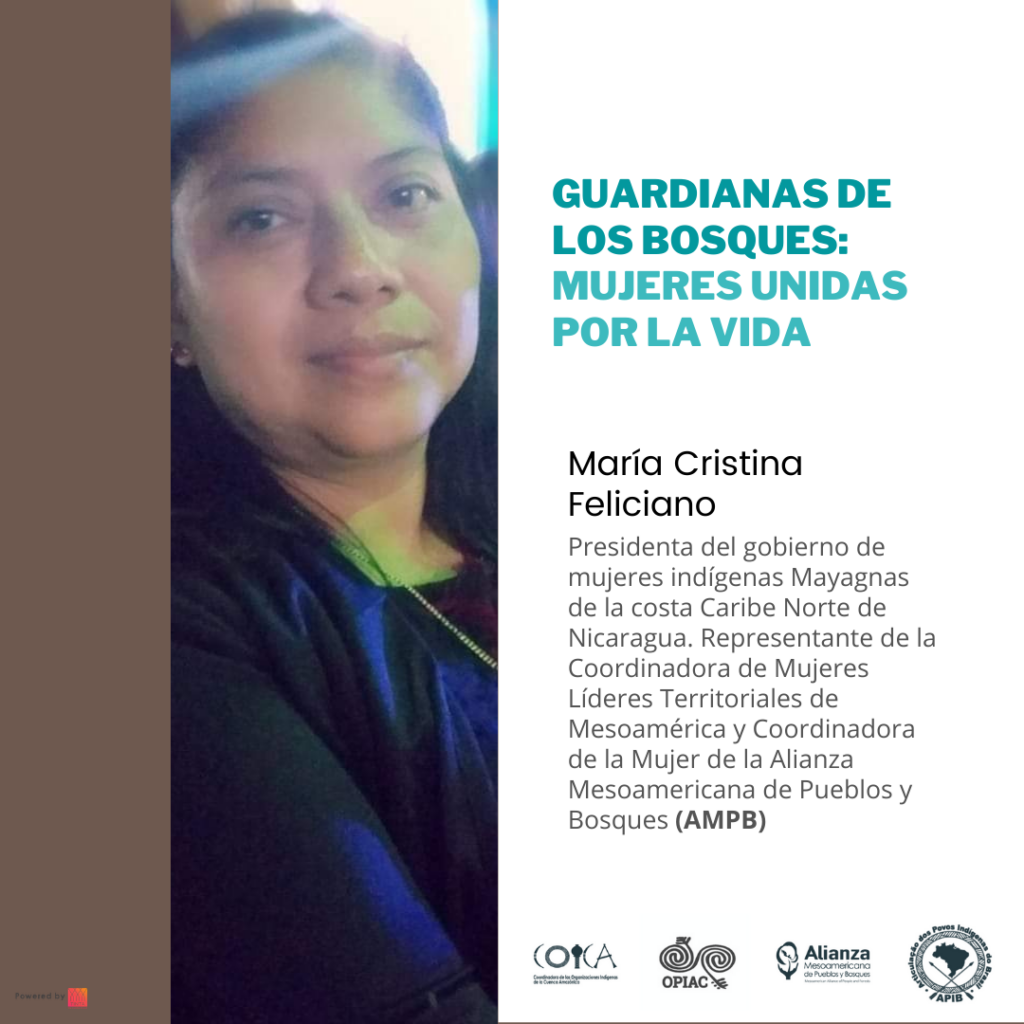
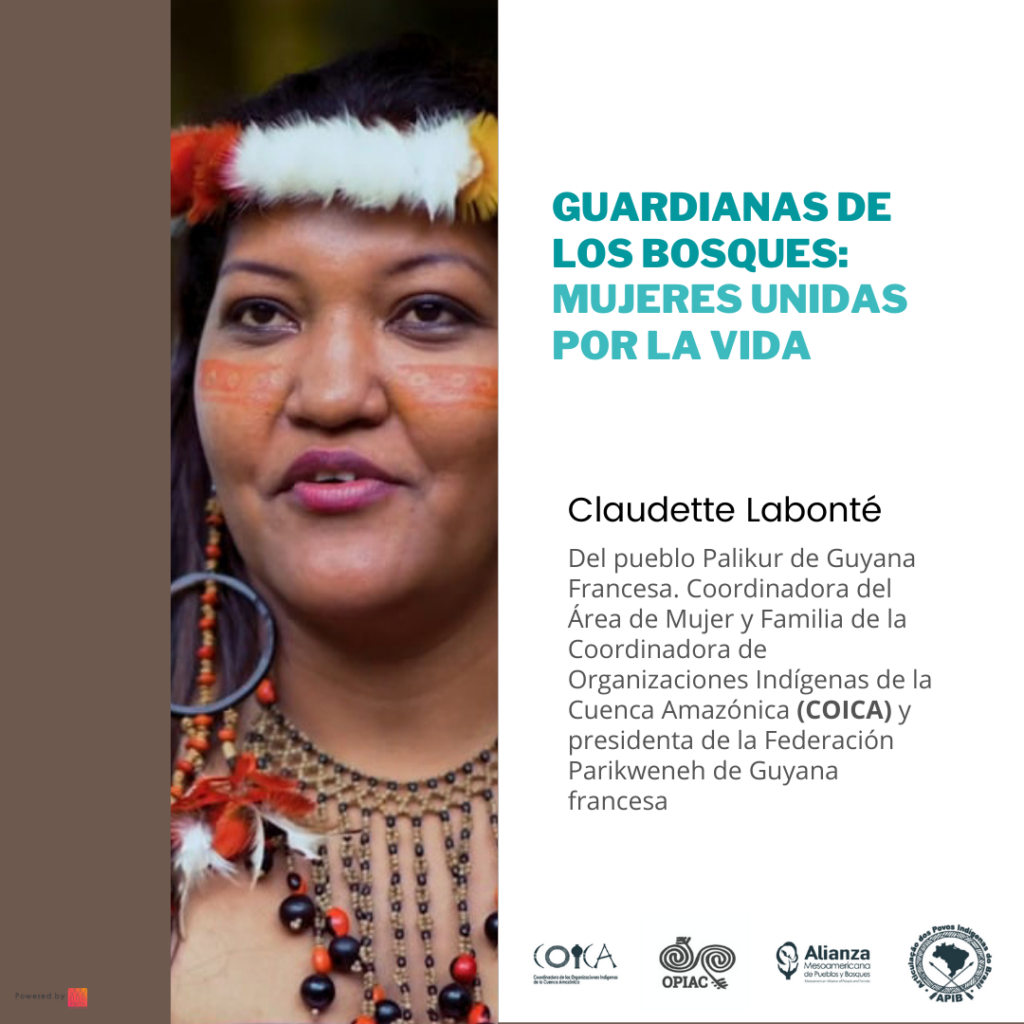
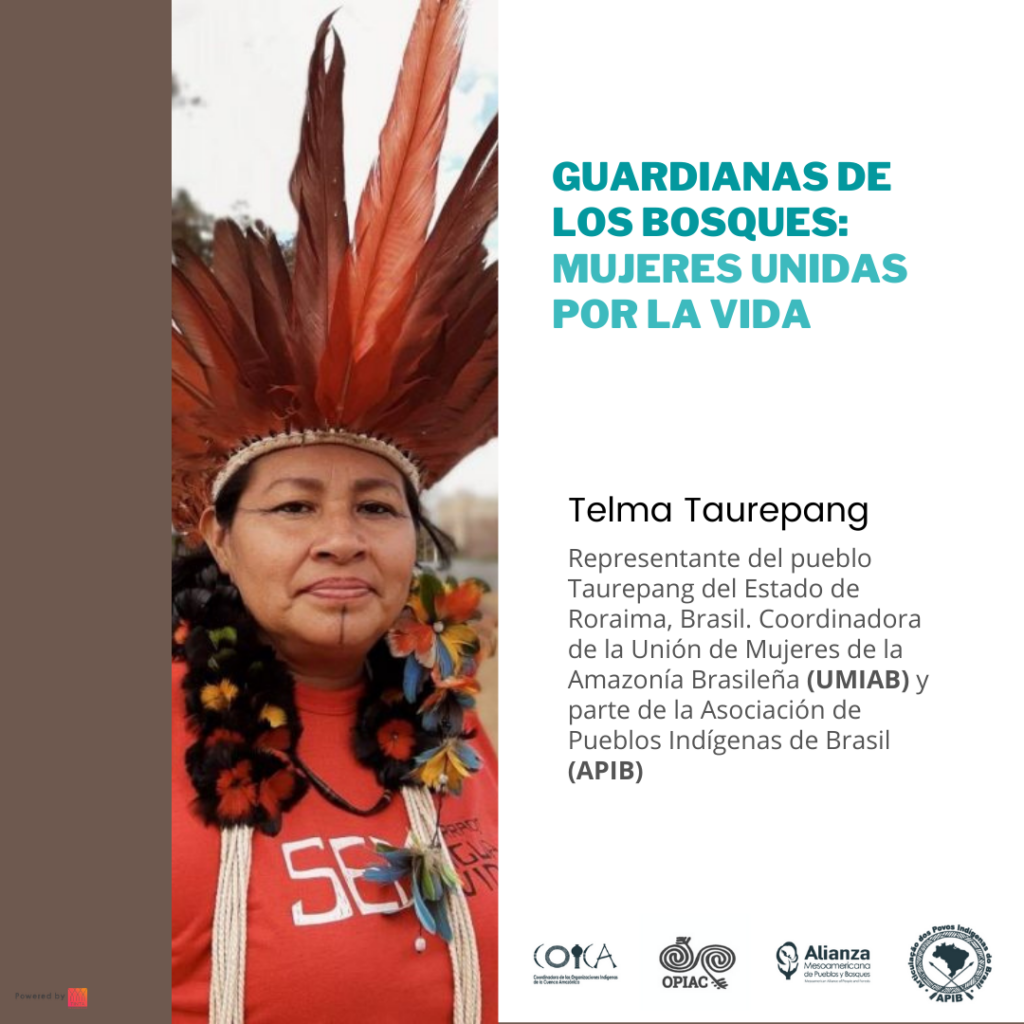
“In French Guyana there is a lot of mining taking place, right now with the covid-19 this activity is becoming more intense, these companies are very present in our territories. We have indigenous organizations that report what is happening. French law does not seem to really protect indigenous peoples, so we created an instance, there we try to establish our right to decide on what takes place in our territories»
Claudette Labonté
President of the Parikweneh Federation of French Guyana
The exchange is an opportunity to learn about the work of the National Organization of Indigenous Peoples of the Colombian Amazon (OPIAC) and its School of Political Training: a learning and capacity-building initiative for the defense of the rights of the 56 indigenous peoples from the Colombian Amazon, with has a transversal participation of women in training and leadership spaces.
Dr. Fany Kuiru, from the Uitoto people, and OPIAC’s Women and Family Coordinator is the hostess of the exchange. She is an lawyer with an expertise in legal and political advice for processes of public policy agreement between the national government and ethnic peoples; Women rights; economic, social and cultural rights from a gender perspective. Dr. Kuiro promotes projects that serve as a model for other organizations to develop equitable policies.
“The Amazon Regional Board is working on 69 projects exclusively for women. Having agreement spaces, having your own spaces for dialogue is important. We must work according to the needs that we indigenous women have, in order to advance our own agenda. Now there is a great demand from women to receive training. We are thinking of a movement of indigenous women from the Colombian Amazon, which we hope to articulate with women from the entire Amazon basin»
Fany Kuiru
Coordinator of Women and Family
National Organization of Indigenous Peoples of the Colombian Amazon (OPIAC)
On the second day of exchange, women leaders from San José del Guaviare -in the Colombian Amazon- received the guests to strengthen cultural ties and share experiences.
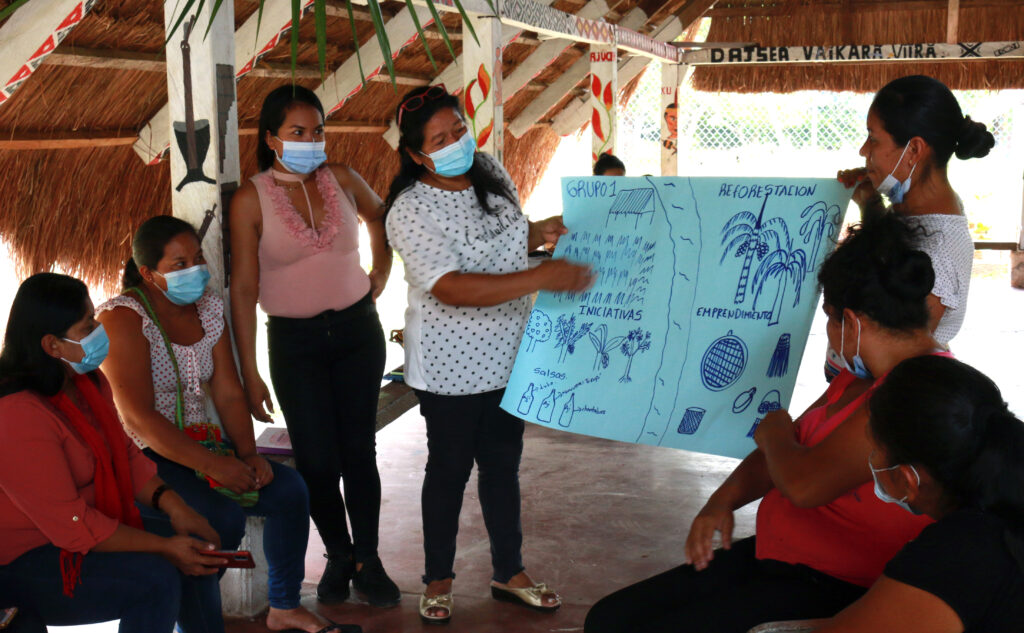
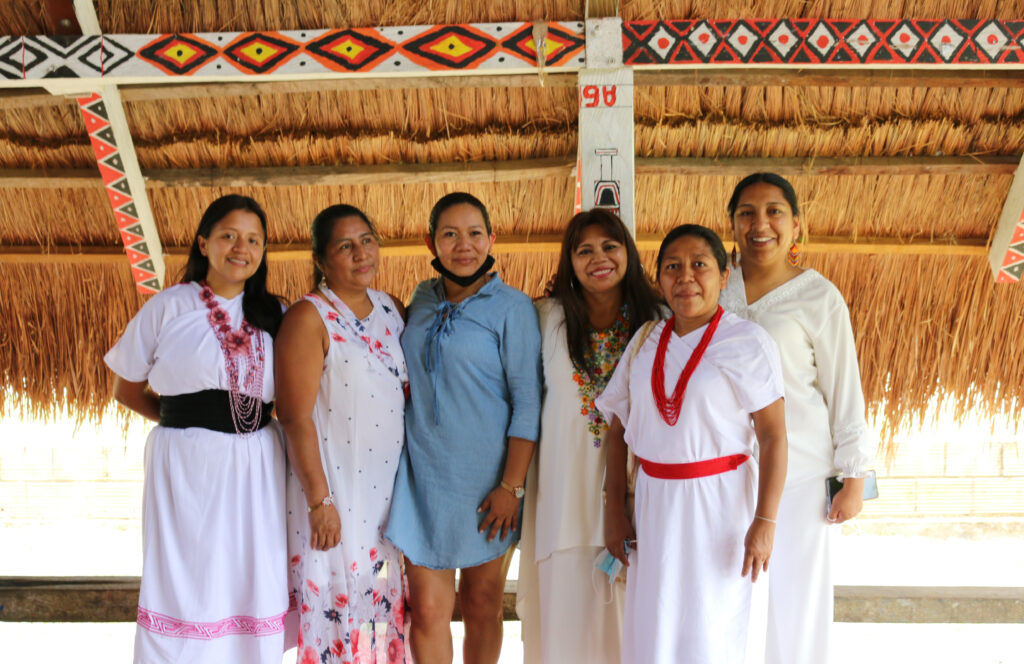
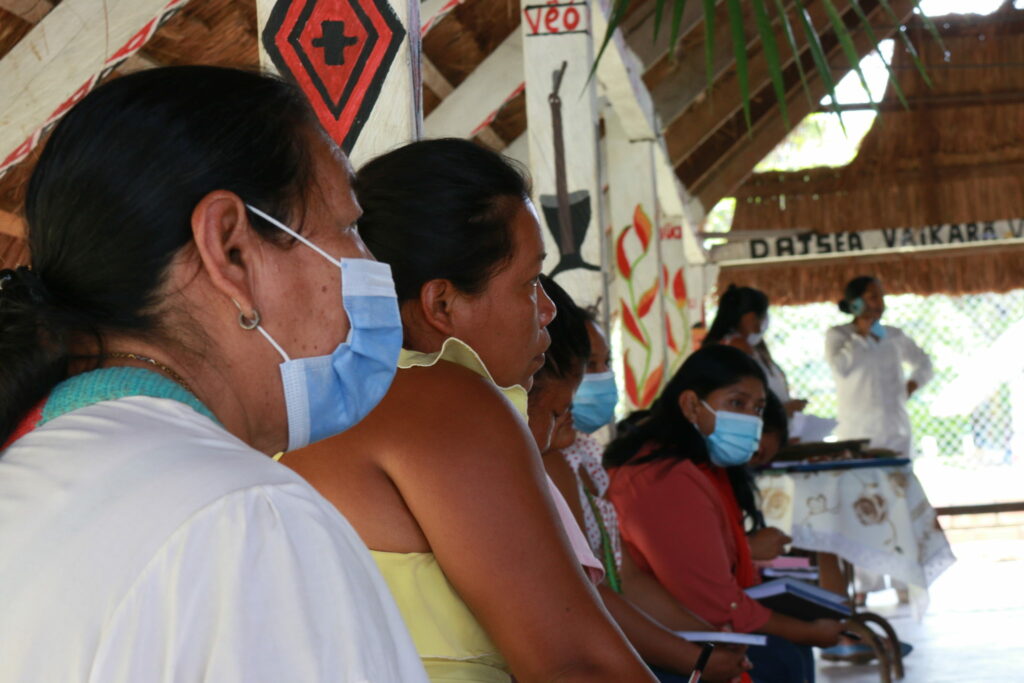
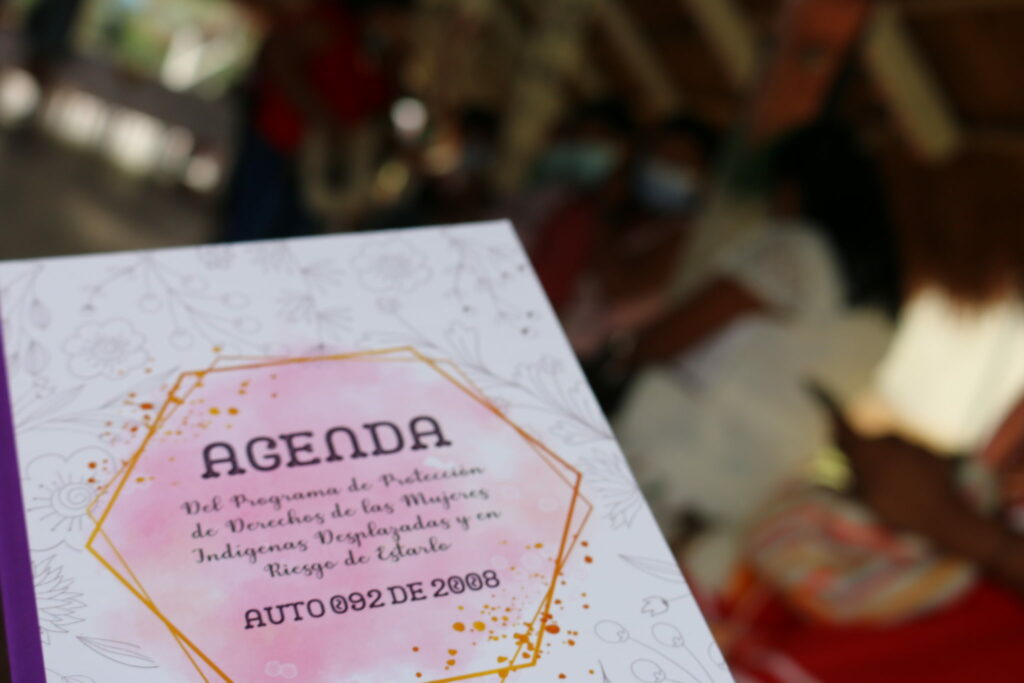
Maloca Panore was the meeting place with the Commission of Indigenous Women of the Permanent Consertation Table (MPC), which seeks the recovery and recognition of individual and collective rights: Territory, Autonomy, Identity and Culture of the Indigenous Peoples of Colombia.
With the theme ‘Climate change and indigenous women’, the participants of the indigenous peoples of the Colombian Amazon shared socialization, reflection and work spaces with the delegates of the Mayagna peoples of Nicaragua and the Palikur peoples of French Guyana. A great meeting with the bearers of ancestral knowledge and promoters of the language and culture of their peoples, women in charge of the political leadership, who are involved in issues that affect their families and communities. This is the type of exchange that allows us to bring common struggles closer together and work for the rights of all.
Through artistic expression, those attending the exchange also analyzed the practices and specific contributions of indigenous women in the care and protection of the environment, and searched for alternatives to make visible the threats related to climate change and the covid-19 pandemic, which disproportionately affect their peoples and communities.
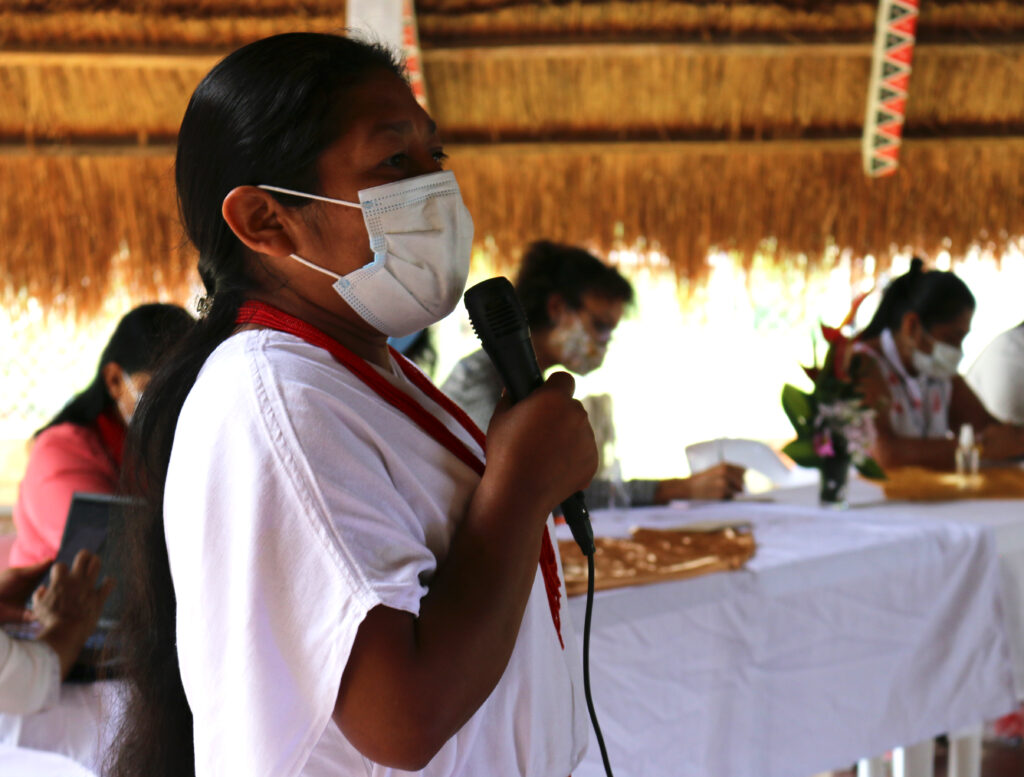
Photos of the exchange courtesy of Guardians of the Forest
The women, guardians of forests and life, seek to generate through this exchange a greater unity that allows them to achieve common goals.
“Without land, without natural resources, without forest, without water, we are nothing; so we have to defend Mother Earth with our unity. We must seek financing for indigenous women, to rescue our ancestral knowledge and for the defense of Mother Earth”
María Cristina Feliciano
President of the Mayagna Indigenous Women Government of the northern Caribbean coast of Nicaragua
The participants in the meeting are part of the Global Alliance of Territorial Communities (AGCT) a coalition of indigenous and community organizations from the Amazon Basin, Mesoamerica and Indonesia, that advocates for the respect of the rights and the inclusion of forest peoples in the global negotiations on climate change, forests and biodiversity
Weaving Ties is an initiative of the invisible thread (TINTA), a global, non-profit facilitation platform that works for the protection of forests, indigenous peoples and local communities, particularly at the service of women and youth